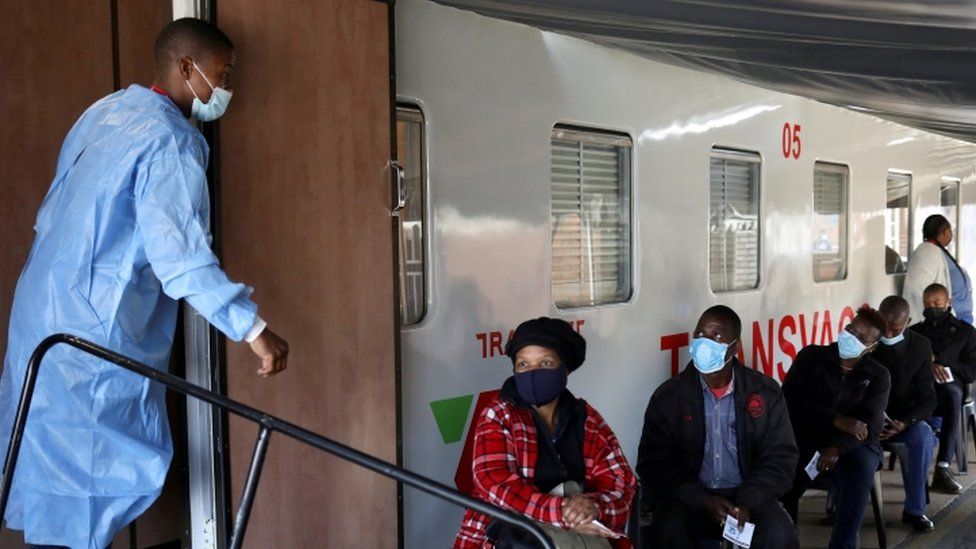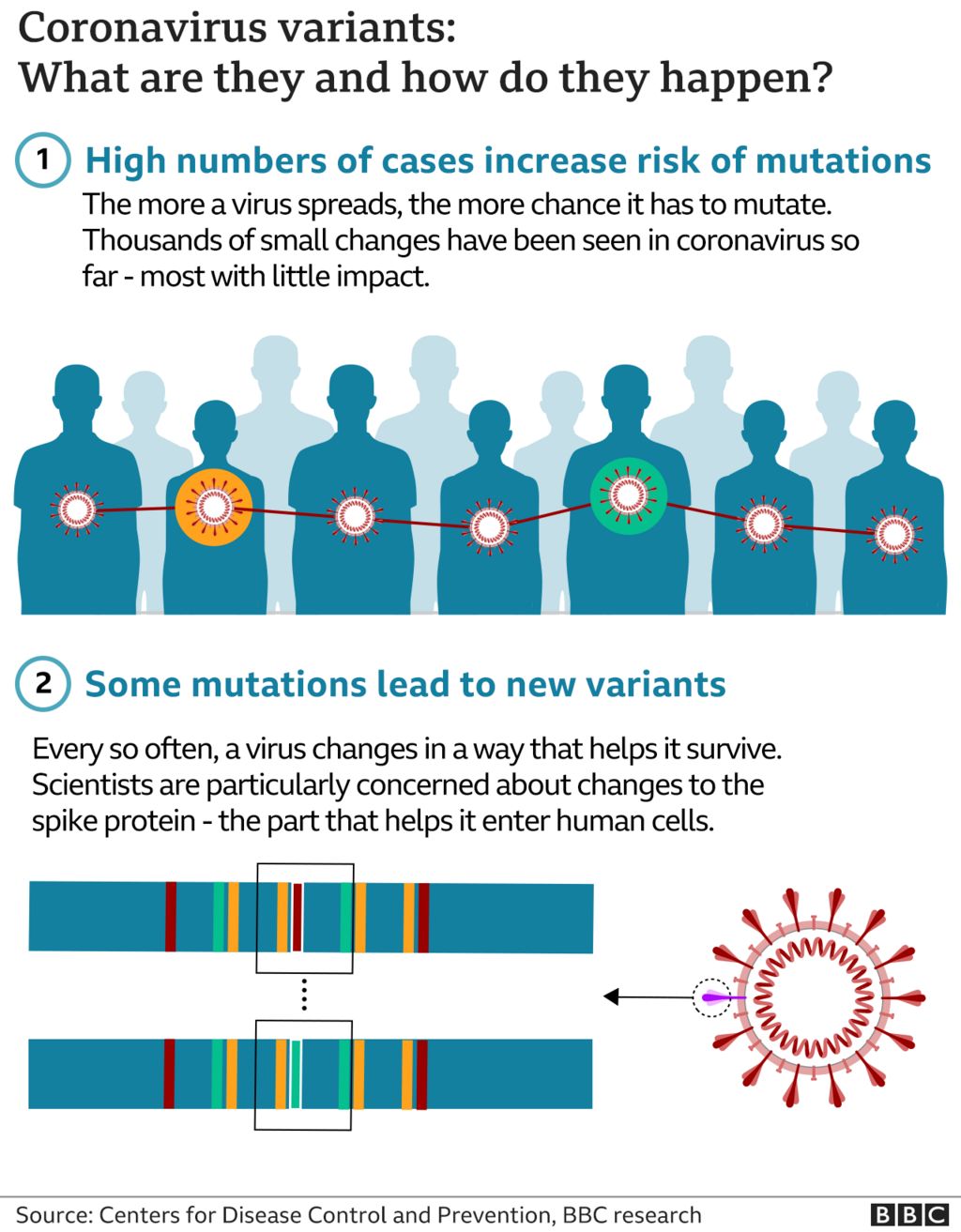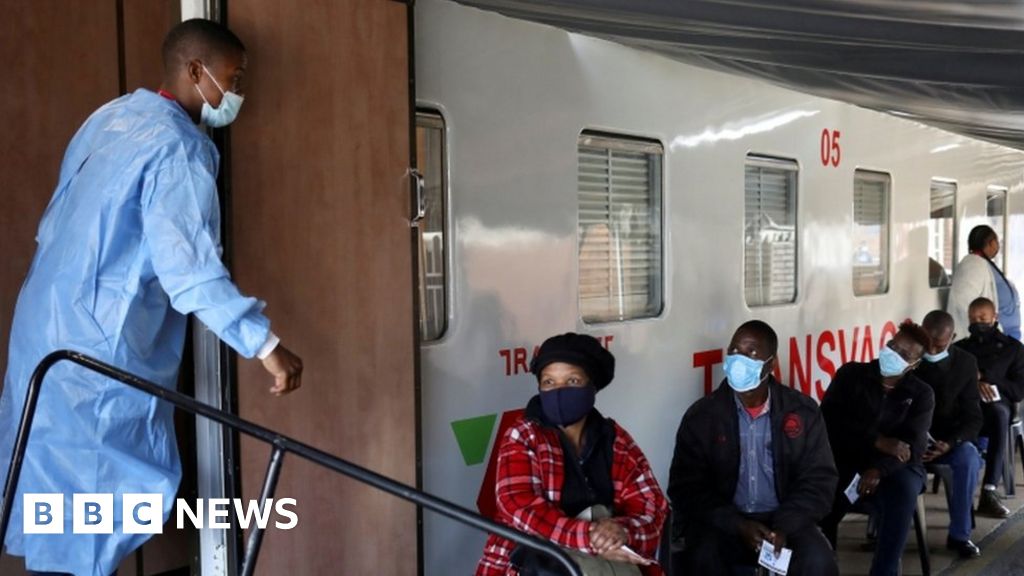
Countries around the world are racing to introduce travel bans and restrictions on southern African countries in an effort to contain the new Omicron variant of Covid-19.
The moves come after the variant was officially named by health officials.
Omicron had many mutations and early evidence suggested an increased reinfection risk, the WHO said.
Meanwhile, hundreds of passengers arriving in Amsterdam from South Africa were tested for the new variant.
Some 61 people on two KLM flights tested positive for Covid-19 and have been quarantined at a hotel near the airport while they have further tests, Dutch officials said.
Passengers travelling from Cape Town to Manchester via Amsterdam told the BBC that they were held on the tarmac at Schiphol Airport in the Dutch capital for four hours, before eventually disembarking.
The Netherlands is currently struggling with a record-breaking surge in cases. A partial lockdown – involving early closure of bars, restaurants and most shops – comes into force there on Sunday.
The new Omicron variant was first reported to the World Health Organization from South Africa on 24 November.
It has also been identified in Botswana, Belgium, Hong Kong and Israel.
Travellers from South Africa, Namibia, Zimbabwe, Botswana, Lesotho and Eswatini will not be able to enter the UK unless they are UK or Irish nationals, or UK residents.
US officials said flights from South Africa, Botswana, Zimbabwe, Namibia, Lesotho, Eswatini, Mozambique and Malawi would be blocked, mirroring earlier moves taken by the EU. They will come into effect on Monday.
A host of other countries have also announced restrictions:
- Australia announced on Saturday that flights from South Africa, Namibia, Zimbabwe, Botswana, Lesotho, Eswatini, the Seychelles, Malawi, and Mozambique would be suspended for 14 days. Non-Australians who have been in those countries in the past two weeks are now banned from entering Australia
- Japan has announced that from Saturday, travellers from much of southern Africa will need to quarantine for 10 days and take a total of four tests during that time
- India has ordered more rigorous screening and testing for travellers arriving from South Africa, Botswana and Hong Kong
- Iran will ban travellers from six southern African countries, including South Africa. Iranians arriving from the region will be admitted after testing negative twice, state TV says
- Brazil also said it was restricting travel to the region from six countries in Africa
- Canada is barring all foreign nationals who have travelled through South Africa, Namibia, Zimbabwe, Botswana, Lesotho, Eswatini or Mozambique in the last 14 days
- Thailand is also banning entry by travellers from eight southern African countries
The WHO said the number of cases of this variant, initially named B.1.1.529, appeared to be increasing in almost all of South Africa’s provinces.
“This variant has a large number of mutations, some of which are concerning,” the UN public health body said in a statement.
It said “the first known confirmed B.1.1.529 infection was from a specimen collected on 9 November”.
The WHO said it would take a few weeks to understand the impact of the new variant, as scientists worked to determine how transmissible it was.
A top UK health official warned that vaccines would “almost certainly” be less effective against the new variant.
But Professor James Naismith, a structural biologist from the University of Oxford, added: “It is bad news but it’s not doomsday.”
Travel bans ‘unjustified’
Only about 24% of South Africa’s population is fully vaccinated, which could spur a rapid spread of cases there, Dr Mike Tildesley, a member of the Scientific Pandemic Influenza Modelling group (Spi-M), told the BBC on Friday.
Meanwhile, US infectious disease chief Dr Anthony Fauci said that while the reports on the new variant threw up a “red flag”, it was possible that vaccines might still work to prevent serious illness.
This video can not be played
To play this video you need to enable JavaScript in your browser.
The WHO has warned against countries hastily imposing travel restrictions, saying they should look to a “risk-based and scientific approach”.
South Africa’s Health Minister Joe Phaahla told reporters that the flight bans were “unjustified”.
“The reaction of some of the countries, in terms of imposing travel bans, and such measures, are completely against the norms and standards as guided by the World Health Organization,” he said.


A “variant of concern” is the World Health Organization’s top category of worrying Covid variants.
The decision adds weight to the mounting scientific worry about the potential of this new variant, but it doesn’t change any of the facts.
The variant has an astounding collection of mutations which are thought to increase its ability to spread and bypass some, but not all, of the protection from vaccines.
However, we still don’t have the clear real-world data.
We don’t know for sure that it spreads faster, makes vaccines or drugs less effective or whether it leads to more severe disease.
The WHO have also given it a name and ended days of speculation that we would end up in the slightly ridiculous position of calling the new variant the “Nu variant”.
There have even been arguments about the correct pronunciation of the Greek letter Nu (it’s technically a “Nee”).
Instead, you can guarantee we’ll be talking a lot about Omicron in the weeks to come.



